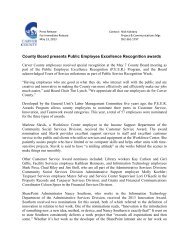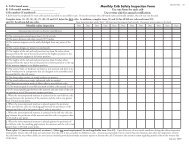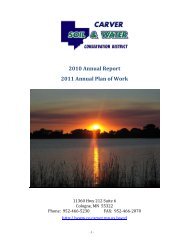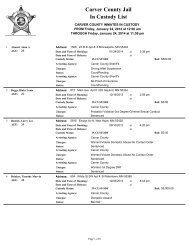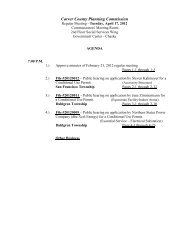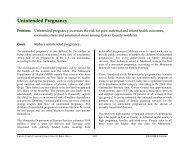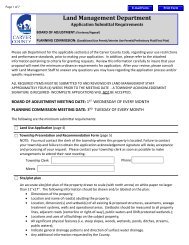Older Adults and Depression - NIMH - National Institutes of Health
Older Adults and Depression - NIMH - National Institutes of Health
Older Adults and Depression - NIMH - National Institutes of Health
You also want an ePaper? Increase the reach of your titles
YUMPU automatically turns print PDFs into web optimized ePapers that Google loves.
What are the different forms <strong>of</strong> depression?<br />
There are several forms <strong>of</strong> depression.The most common<br />
forms are:<br />
Major depression—severe symptoms that interfere with<br />
your ability to work, sleep, study, eat, <strong>and</strong> enjoy life. Some<br />
people may experience only a single episode within their<br />
lifetime, but more <strong>of</strong>ten a person may have multiple episodes.<br />
Dysthymic disorder, or dysthymia—depressive symptoms<br />
that last a long time (2 years or longer) but are less severe<br />
than those <strong>of</strong> major depression.<br />
Minor depression—similar to major depression <strong>and</strong><br />
dysthymia, but symptoms are less severe <strong>and</strong> may not last<br />
as long.<br />
What are the signs <strong>and</strong> symptoms <strong>of</strong><br />
depression?<br />
Different people have different symptoms. Some symptoms <strong>of</strong><br />
depression include:<br />
• Feeling sad or “empty”<br />
• Feeling hopeless, irritable, anxious, or guilty<br />
• Loss <strong>of</strong> interest in favorite activities<br />
• Feeling very tired<br />
• Not being able to concentrate or remember details<br />
• Not being able to sleep, or sleeping too much<br />
• Overeating, or not wanting to eat at all<br />
• Thoughts <strong>of</strong> suicide, suicide attempts<br />
• Aches or pains, headaches, cramps, or digestive problems.<br />
What causes depression?<br />
Several factors, or a combination <strong>of</strong> factors, may contribute to<br />
depression.<br />
Genes—people with a family history <strong>of</strong> depression may be<br />
more likely to develop it than those whose families do not<br />
have the illness. <strong>Older</strong> adults who had depression when they



